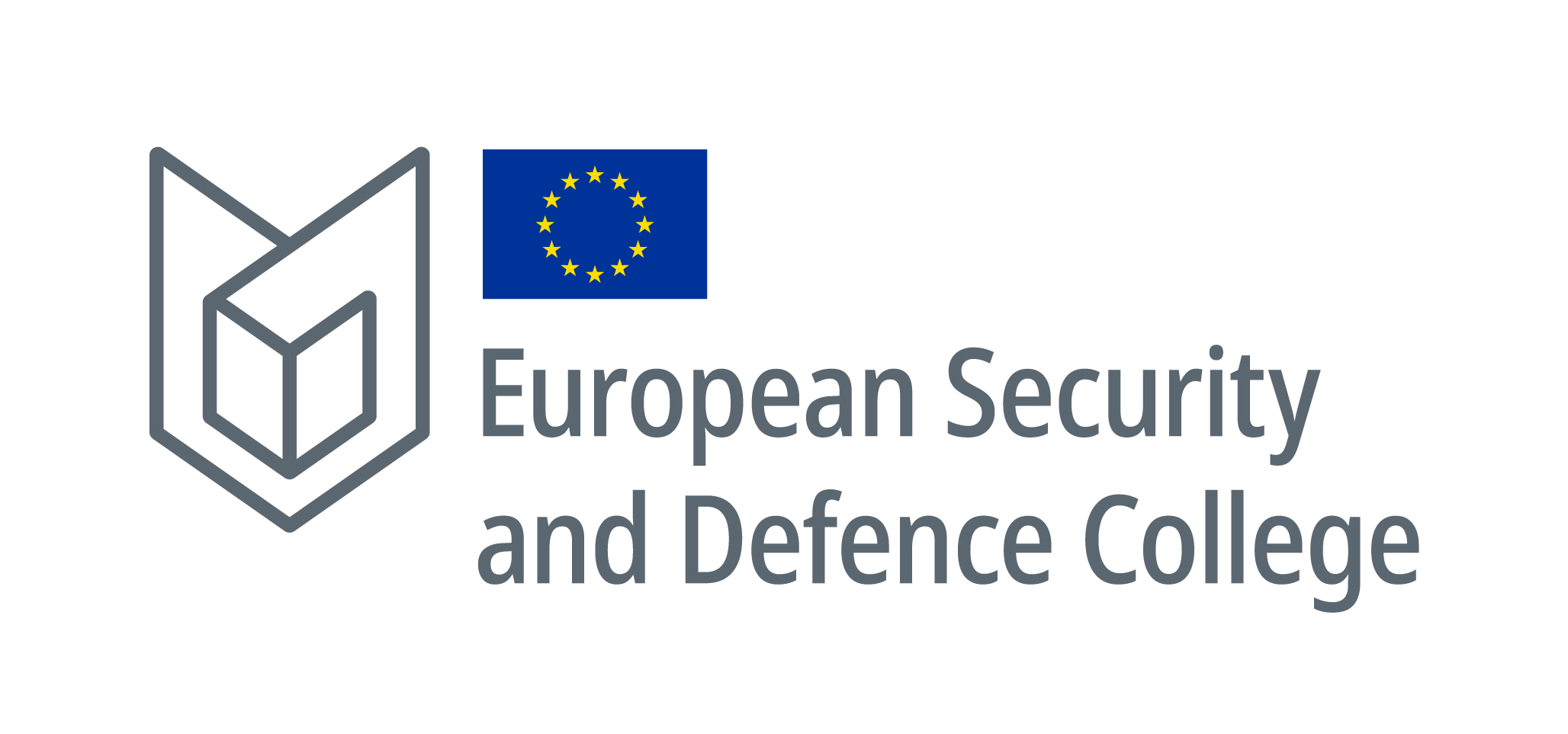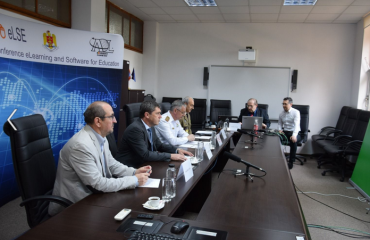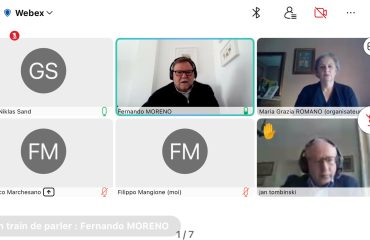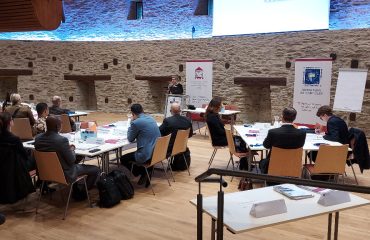‘The past two decades have witnessed a surge in international efforts to end wars, stabilise fragile states, and rebuild war-torn societies. An unprecedented number of peace operations have been deployed to deal with crises and violent conflicts. Missions need to address the political dimension of conflicts to avoid being just a temporary fix and maybe leading to a resumption of violence. That is why the political affairs function has become central to peace operations and political missions.’This quotation from Mr Fredrik Wesslau, who wrote the Political Advisers’ handbook, clearly explains the key role of political advisers in CSDP missions and operations and how important it is for them to be able to mediate and negotiate in their daily work.
 Module 2 of the12th Advanced Course for Political Advisors in CSDP Missions and Operations took place with great success in Brussels from 4 to 7 July 2023 and was co-organised with the Geneva Centre for Security Policy (GCSP) under the aegis of the European Security and Defence College (ESDC). During the four-day course, participants engaged in learning and practicing different techniques of mediation and negotiation that will eventually enable them to find ways out of political impasses and help conflict parties to consider constructive paths towards solutions.
The programme was carefully designed to meet the participants’ needs and interests. Ms Christina Orlsich, course director and Deputy Director and Head of Executive Education at the GCSP, delivered the opening remarks and warmly welcomed participants. Subsequently, experts from Maynooth University in Ireland, Dr Kieran Doyle and Sean McGearty, engaged the participants in very interactive sessions with experiential exercises on the tools needed to face crises in difficult conflict contexts.
Module 2 of the course proved to be an excellent interactive learning experience for participants, giving them the opportunity to take part in working sessions where they were able to explore and develop their communication skills, which are an integral part of their professional lives. In this regard, day two started off with a terrific presentation on strategic communication and on how to use narrative for impact. The participants greatly enjoyed the workshop that followed, during which they had to put into practice what they had learnt and were challenged to speak in public to deliver a specific message. The lecturer was Ms Jennifer Clickner, an expert in communication and a senior broadcast journalist.
Module 2 of the12th Advanced Course for Political Advisors in CSDP Missions and Operations took place with great success in Brussels from 4 to 7 July 2023 and was co-organised with the Geneva Centre for Security Policy (GCSP) under the aegis of the European Security and Defence College (ESDC). During the four-day course, participants engaged in learning and practicing different techniques of mediation and negotiation that will eventually enable them to find ways out of political impasses and help conflict parties to consider constructive paths towards solutions.
The programme was carefully designed to meet the participants’ needs and interests. Ms Christina Orlsich, course director and Deputy Director and Head of Executive Education at the GCSP, delivered the opening remarks and warmly welcomed participants. Subsequently, experts from Maynooth University in Ireland, Dr Kieran Doyle and Sean McGearty, engaged the participants in very interactive sessions with experiential exercises on the tools needed to face crises in difficult conflict contexts.
Module 2 of the course proved to be an excellent interactive learning experience for participants, giving them the opportunity to take part in working sessions where they were able to explore and develop their communication skills, which are an integral part of their professional lives. In this regard, day two started off with a terrific presentation on strategic communication and on how to use narrative for impact. The participants greatly enjoyed the workshop that followed, during which they had to put into practice what they had learnt and were challenged to speak in public to deliver a specific message. The lecturer was Ms Jennifer Clickner, an expert in communication and a senior broadcast journalist.
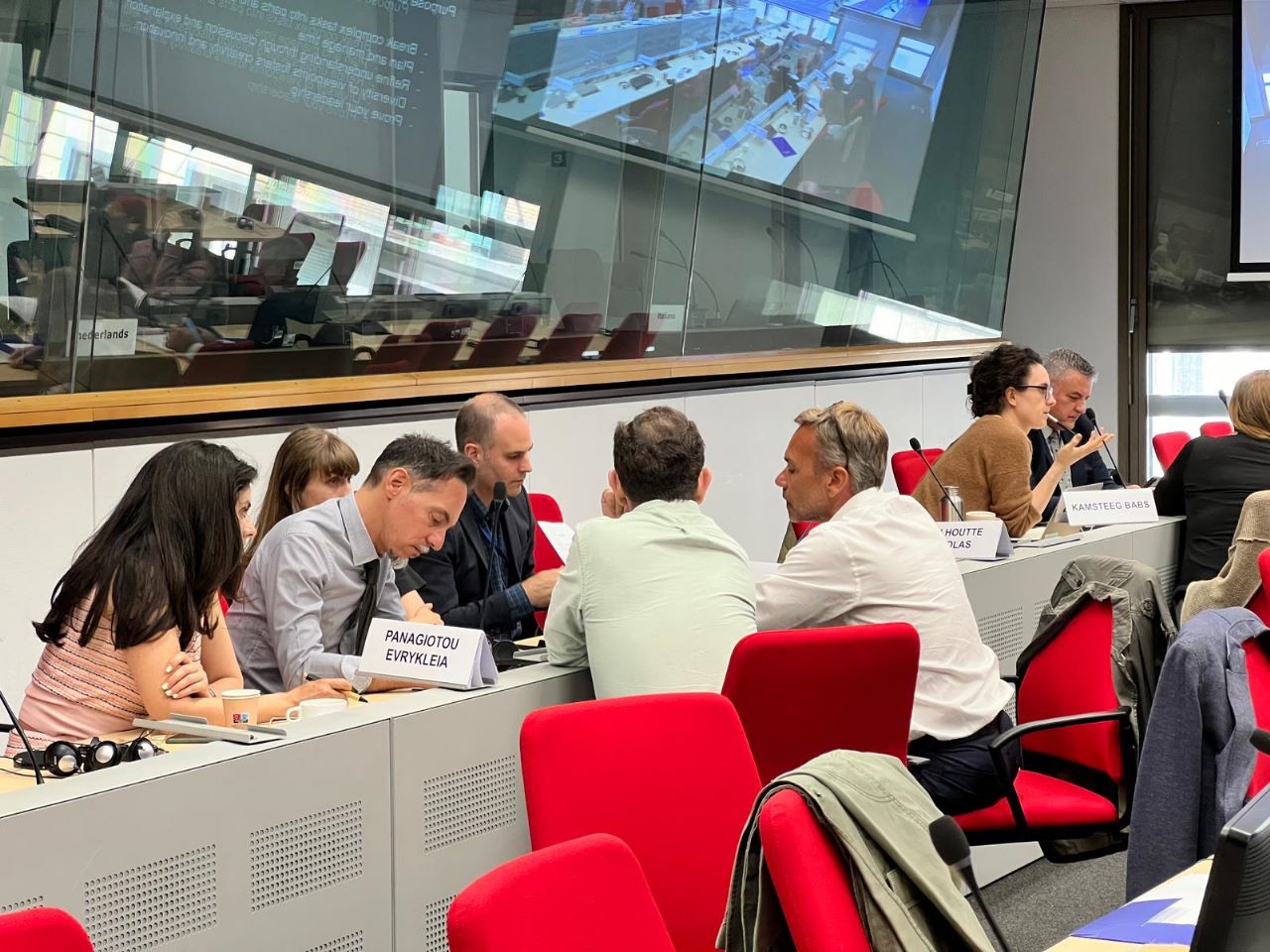 Module 2 of the course successfully concluded with an innovative session on leadership and on how to successfully navigate polarities, with a speech delivered by the course director.
The ESDC would like to thank all the speakers for their dedication to the course and all the participants for their active participation and contribution. Special thanks go to the course director for her outstanding supportiveness and substantial coordination.
Module 2 of the course successfully concluded with an innovative session on leadership and on how to successfully navigate polarities, with a speech delivered by the course director.
The ESDC would like to thank all the speakers for their dedication to the course and all the participants for their active participation and contribution. Special thanks go to the course director for her outstanding supportiveness and substantial coordination.
